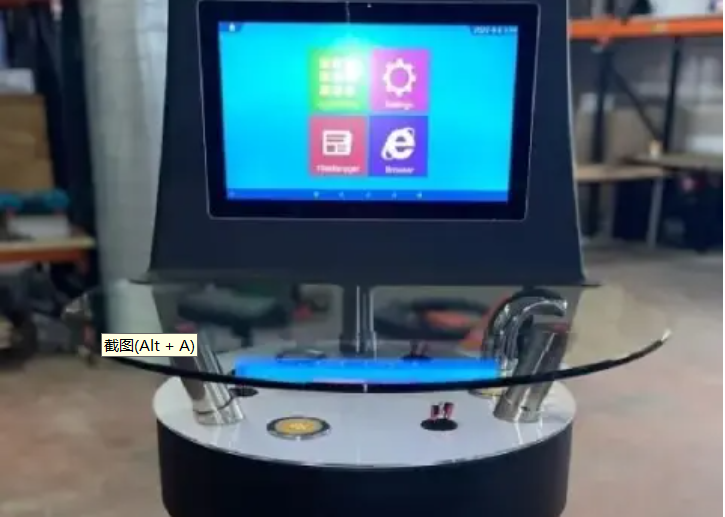Design Flexibility with Custom Injection Molding
Creating Complex Geometries Effortlessly
Custom injection molding provides unmatched flexibility for ease of producing complex geometries. This complex shaping is not feasible in the past creating of undercuts, overhangs, and thicknesses not consistent is now possible with this advanced molding process. Advanced mold design technology is used by the manufacturers to manufacture these features and it results in the products that are more functional as well as pleasing for eyes. CAD more fully enables this, enabling designers to conceive and perfect designs prior to fabrication, eliminating expensive and impractical prototype fabrication. In high-stress industries like automotive or aerospace where precise design can be the difference between success and failure, injection molding can help ensure products meet their high standards for precision design and radical innovation.
Tailoring Parts to Exact Specifications
Bespoke injection molding specializes in mass producing parts to a customer’s exact specifications, ensuring every element meets the exact requirements of the customer. Manufacturers can tailor them to size, shape and features (including better integration with other components and systems) during the design stage. Customers have the options to ask for certain tolerances, surface finishes, and even colours so products become more functional and pleasing to the eyes of customers. This flexibility is invaluable, as it allows manufacturers to address new client requirements or specifications early on in a project’s development process, avoiding potential delays. Take advantage of custom injection molding, and companies will receive high quality, unique parts that are superior in a competitive market, showcasing the undeniable benefits in high quality product design.
Cost Efficiency in Mass Production
Reducing Per-Unit Costs at Scale
Custom injection molding is also very cost effective when the part goes into large scale production. The per-unit costs drop precipitously as the volume of production goes up. Sure, the molds are not cheap, but if you plan to make thousands of units they are cost effective once the investment is made. There are industry studies that show that as you produce more and more, your average production costs can drop by 30% or more. All of these are effective and this cost efficiency has proven to be attractive to businesses from industries of all types to consumer goods and industrial parts businesses which are able to increase their margin on their products while still maintaining quality.
Minimizing Material Waste
Cutting down on material waste is another notable benefit that is offered by custom injection molding. With thoughtful mold design and optimum processing deliveries, materials can be utilized very efficiently, as low as 2% scrap--or less, in certain cases. With the use of simulation software, manufacturers can accurately forecast the flow of material ensuring minimal wastage. If doing business sustainably is key to the success of any business nowadays, not only in what concerns costs, but also for lightening the environmental footprint. As such, the effectiveness of injection molding is in line with economic and environmental objectives, providing a mechanism for businesses to participate in greener manufacturing.
Superior Material Selection Options
Access to Engineering-Grade Polymers
As a part of custom injection molding, developers realize unique access to these wide ranging engineering-grade polymers designed to meet specific performance criteria. These materials include ABS, PC, nylon, offering prints with high toughness and superior mechanical properties common to the production techniques that used heat and pressure and impact. Indeed, according to the reports, the right polymer can add 20-40% in performance, and help guarantee ideal operation long into the life cycle of the product. Manufacturers can boost product reliability and lifetime by better understanding end-use applications.
Specialized Materials for Unique Applications
Another attractive feature is the capability of using proprietary materials for unique circumstances that custom injection molding provides. Manufacturers can choose from flame retardant or UV resistant polymers to help meet specific regulatory requirements, enabling new applications in industries like medical devices, automotive, and electronics. Expert advice and ongoing development in materials science make it possible to pick the optimal material mix to have desired material properties and features without making trade-offs. As technology, materials, and functionality expand, so too does the possibility for creating products for very specific, specialized needs.
Accelerated Product Development Cycles
Rapid Prototyping Capabilities
Create prototypes in days – not weeks! Like this, custom injection molding provides fast prototyping for companies to build models for testing and validation. Supportive processes such as 3D printing extend this process adding concurrent rapid iterations and collection of feedback. This rapid method can decrease development by 50% or more, which is necessary to meet today's market requirements. In addition, prototyping enables companies to discover and correct potential issues early, so that they can maximize their design before scaling to full production. Combining custom injection molding with the latest in prototyping technology, companies can streamline design and function, which is key in the ultimate success of a product launch.
Seamless Transition to Full Production
Custom injection molders generally offer a move to production with no delays as the tooling was built for that purpose, and the transfer is seamless between prototype and production. A prototype that works can be scaled to a mass production line without deviation in quality and performance at any step of the manufacturing process. Data suggests that people are production ready in a matter of weeks after the prototype is approved. This is supported by close manufacturing relationships which enable continuous improvements over the life of the product. This type of strategy collaboration, with the manufacturer and the customer working together to develop new capabilities, allows both the manufacturer and the customer to respond quickly to new market requirements, reinforcing the competitiveness and efficiency of customized injection molding as a manufacturing option.
Enhanced Product Quality and Consistency
Precision Repeatability in Manufacturing
Precision repeatability is critical in maintaining quality and consistency on this project, and that's exactly what custom injection molding provides. It reduces differences between production runs as much as possible by ensuring compliance with rigid specifications and high standards. With quality molds and modern equipment, defect rates for many firms now register less than one per-cent, leading to dependable performance � not to mention happy customers. Premium in technologies And the technology of the quality control investment, so that the product became more reliable. Product is the life of the brand! Better still, the adoption of these technologies actually consolidates that market position of the product, contributing to customer trust and loyalty.
Reducing Defects Through Controlled Processes
Controlled production methods are imperative in preventing defects in injection molding, as well as mass production. With technology like in-process monitoring, manufacturers can make changes on the fly to solve any possible problems. Leveraging best practices and utilizing automatic controls can significantly minimize error rates, and therefore increase production efficiency. This standardization in production helps to increase efficiency across the board and reinforce brand and customer relationships. Customers are more likely to trust a brand that performs consistently and reliably which in turn increases the company's reach.
FAQ Section
How can custom injection molding reduce production costs?
Custom injection molding reduces production costs primarily through economies of scale. As production volumes increase, the per-unit cost decreases significantly. The upfront investment in molds pays off with substantial savings in large production runs, often exceeding 30% as output grows.
What industries benefit from custom injection molding?
Industries such as automotive, aerospace, medical devices, consumer goods, and electronics benefit greatly from custom injection molding. The process is ideal for producing complex, high-precision components crucial for functionality and performance.
How does custom injection molding minimize material waste?
Custom injection molding minimizes material waste through precise mold design and advanced processing techniques that reduce scrap rates to below 2%. Additionally, simulation software helps optimize material flow, further reducing waste.
Why is rapid prototyping important in custom injection molding?
Rapid prototyping allows companies to quickly create and test models, leading to faster revisions and reduced development times. It helps identify design issues early, optimizing the product before mass production and aligning with market demands.

